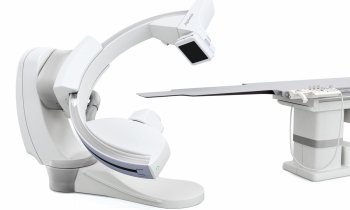Image source: Unsplash/Michele Blackwell
News • Omega-3 and cardiac health
Cardiologists link fish oil supplements with heart rhythm disorder
Omega-3 supplements are associated with an increased likelihood of developing atrial fibrillation in people with high blood lipids.
That’s the finding of a study published in European Heart Journal - Cardiovascular Pharmacotherapy, a journal of the European Society of Cardiology (ESC). “Currently, fish oil supplements are indicated for patients with elevated plasma triglycerides to reduce cardiovascular risk,” said study author Dr. Salvatore Carbone of Virginia Commonwealth University, US. “Due to the high prevalence of elevated triglycerides in the population, they can be commonly prescribed. Of note, low dose omega-3 fatty acids are available over the counter, without the need for a prescription.”
Some clinical trials have suggested that omega-3 fatty acids may be associated with an increased risk for atrial fibrillation, the most common heart rhythm disorder. According to the 2020 ESC guidelines for the diagnosis and management of atrial fibrillation, people with the disorder have a five times greater likelihood of having a stroke. These studies tested different formulations of omega-3 fatty acids at different doses. The authors therefore performed a comprehensive meta-analysis of randomised controlled trials to answer the question of whether fish oils were consistently related to a raised risk for atrial fibrillation.
The risk for atrial fibrillation should be considered when such agents are prescribed or purchased over the counter, especially in individuals susceptible to developing the heart rhythm disorder
Salvatore Carbone
The analysis included five randomised controlled trials investigating the effects of omega-3 fatty acid supplementation on cardiovascular outcomes. Participants had elevated triglycerides and were either at high risk for cardiovascular disease or had established cardiovascular disease. A total of 50,277 patients received fish oils or placebo and were followed up for between 2 and 7.4 years. The dose of fish oils varied from 0.84 g to 4 g per day.
The researchers found that omega-3 fatty acid supplementation was associated with a significantly increased risk for atrial fibrillation compared to placebo with an incidence rate ratio of 1.37 (95% confidence interval 1.22–1.54; p<0.001). Dr. Carbone said: “Our study suggests that fish oil supplements are associated with a significantly greater risk of atrial fibrillation in patients at elevated cardiovascular risk. Although one clinical trial indicated beneficial cardiovascular effects of supplementation, the risk for atrial fibrillation should be considered when such agents are prescribed or purchased over the counter, especially in individuals susceptible to developing the heart rhythm disorder.”
Source: European Society of Cardiology
30.04.2021











